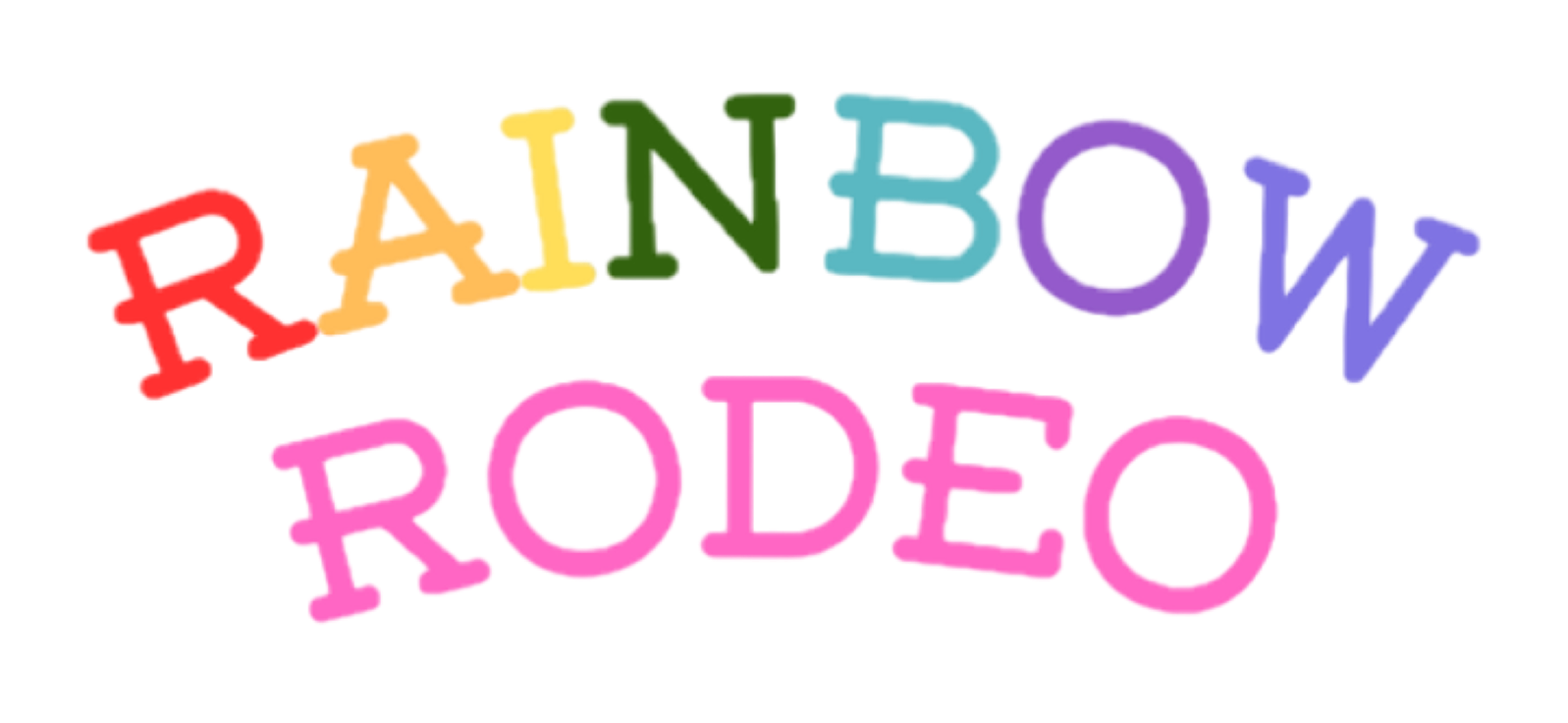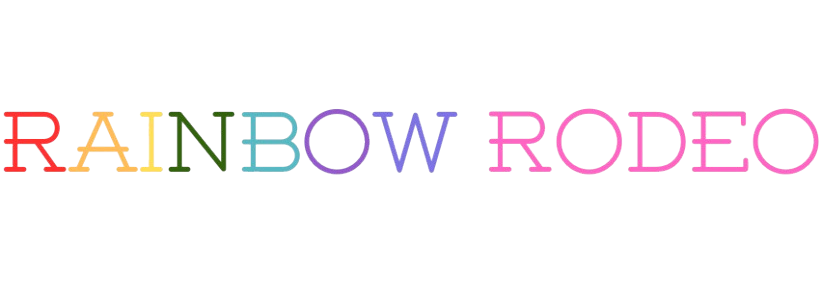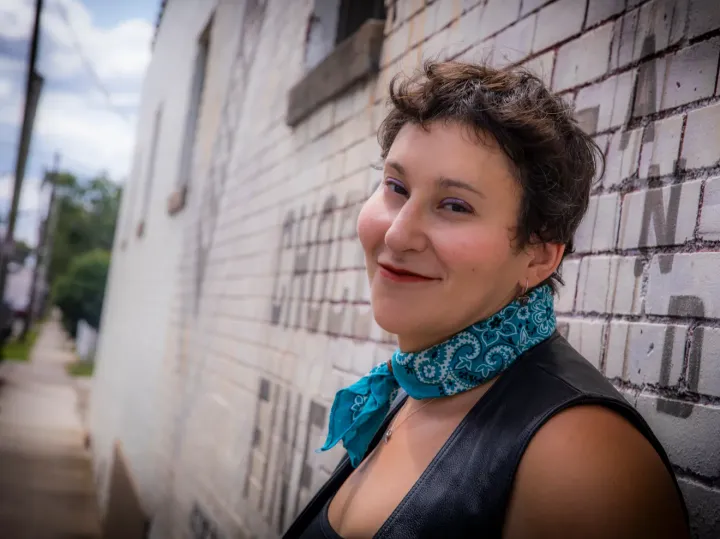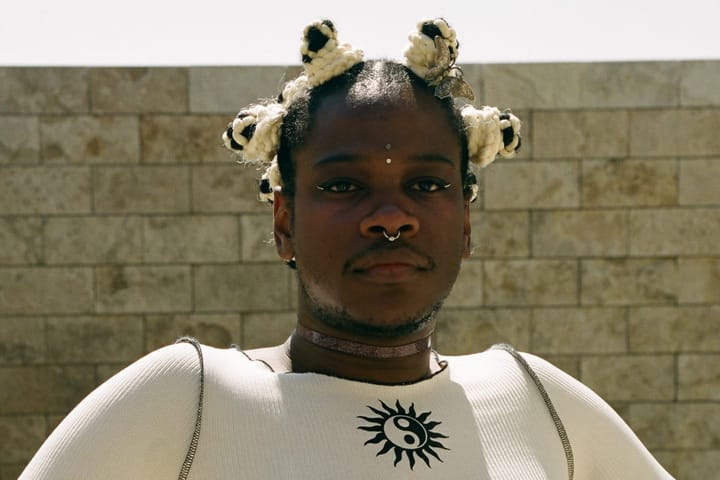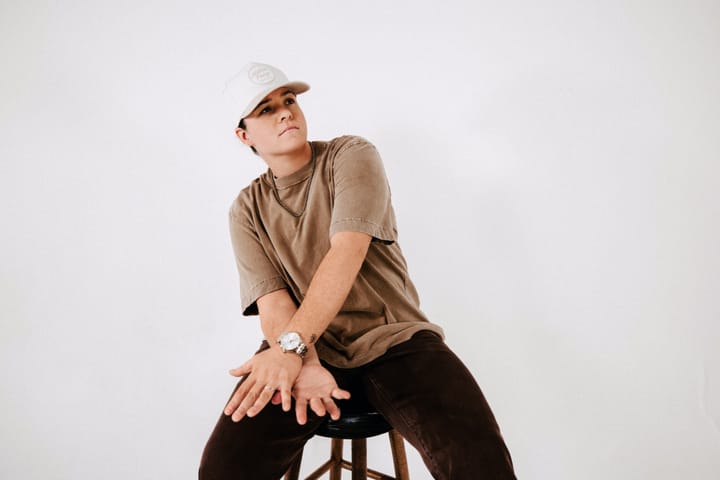"Gay" Does Belong In Front of Country Music, Actually: A Report From CRS 2024

A rough draft of this essay appeared on Friday’s Rainbow Rodeo newsletter
For those of you who are not familiar, Country Radio Seminar is the industry event where radio programmers meet up and make totally-not-payola deals with the major record labels to determine which artists will be played on the radio. As Marissa Moss reported in Rolling Stone in 2018, and alluded to in her book Her Country, CRS is the epicenter of the country music old boys’ club and is rife with sexual harassment (and worse) at the after-hours, invite-only events.
(I’ll write more about the music itself on Adobe & Teardrops next week. As you can imagine, there was not much queer country music to report on except that The Brothers Osborne debuted a new song and, as usual, it’s good!)
I was invited to speak alongside Holly G of the Black Opry, Johnny Chiang of Sirius XM, and Tiffany Provenzano of CMT and MTheory’s Equal Access artist mentorship program, about breaking the unspoken rules of country radio. You can watch the panel here.
Naturally, Beyonce’s country turn was the topic of much conversation, but Holly and I focused on the hard work and DIY inventiveness of artists who have been ignored by the radio and label side of the industry, while Johnny explained that when he was coming up as a programmer, he had been told specifically not to play two Black artists or two women back to back on pop radio.
Holly observed that audiences need to be trained to see country by black and LGBTQ+ artists as legitimate country music, and playing them on the radio is one way to do that. I pointed out that it’s a fallacy to expect that minimizing the number of spins marginalized artists received in the name of sonic diversity is a fallacy, since not all queer or POC artists sound like each other. Another point that Johnny raised, and was raised again at Dr. Jada Watson’s panel a few days later, is that the stations and the labels are in a feedback loop of trying to do what the other expects of them.
But another point I tried to raise is that we do not feel physically safe in the mainstream confines of country music. Right before I flew down to Nashville, Governor Bill Lee made it possible for public officials to refuse to perform marriages “against their beliefs” (so…same-sex marriages but potentially also interracial marriages?) And just a week before that, a large neo-Nazi rally marched just outside of the hotel complex CRS took place in. It’s small wonder that we feel suspicious of mainstream country and discount it as a platform for our music, I said. That’s why it’s important for stations to do more outreach to local artists, to work around the labels, and, I explained, to explicitly welcome LGBTQ+ and artists of color to submit music.
Unfortunately, if you followed the news coverage of CRS, you wouldn’t know that. In fact, the “CRS Daily Buzz,” written by Country Aircheck staff, directly contradicted us.
At the Y’all Means All Breakfast (watch here), Frank Ray (who is Latino), Lily Rose (who is queer), and Jon Loba (from BMG) as moderated by retired DJ Jaye Albright, the quartet discussed the need for diversity in country radio and the struggles they’ve experienced. Albright, at about the 20-minute mark, observed that on the radio, “nobody can see your face” so if you play diverse artists, maybe they’ll like someone they didn’t think they’d like!!! Albright recalled that when she played Charley Pride, fans got into the music and were pleasantly surprised to discover he was Black. So…trick audiences into accepting diverse artists. Got it. Cool.
To be clear, there are a lot of extremely vital points raised here and the panel is, I think, essential viewing: at the 36-minute mark, Rose tears up recalling stories of fans who are so thrilled to finally see somebody who represents them on a big country music stage.
…and then, at the 40-minute mark, she says “the word ‘gay’ doesn’t belong in front of ‘country artist’….Those are the least interesting things about us. Not every space needs to be inclusive.” Right before that, she objected to having to only singing love songs using female pronouns, because she feels music should be “inclusive” of “everyone”…which I guess means people who have always felt included?
Within the context of the discussion, Rose is arguing that there should be more representation out there, that there should not be the queer country singer, the Latino singer…but this is the quote that CRS chose to pull and insert into their newsletter of daily convention highlights, with no mention of our panel that said basically the opposite. If you’re going to talk about diversity and inclusion then you need to, well include the diversity of opinions on the topic.
More tellingly, this discussion came in response to the question “Would Tim McGraw’s ‘Indian Outlaw’ still be played on country radio today?” Like, what the fuck? You wanted these people to give you permission to be racist? Good for whoever, asked that because they totally went ahead and did that.
There is certainly a larger conversation to be had about artists feeling “pigeonholed” (and I will vomit on the next person who uses that phrase in front of me)…and the best way to avoid that is to make sure there’s a plethora of diversity in the artists represented. And, of course, the debate within our community about assimilation versus remaining distinct is a debate that has raged within minority communities for millenia — just ask us Jews.
I went into CRS with my shoulders tensed, worried I’d have to experience some kind of microaggression by walking around with my top surgery’d body. If they provided the all-gender restroom they assured me they would, I can tell you I never found it.
But most of all, I’m fucking offended that they threw this disgusting-when-out-of-context pull quote from Lily Rose that invites people to erase us from country music — negating the very work that everyone reading this very newsletter is engaged in. I paid my own way to speak at the conference (for no honorarium) for this?
However, there are some rays of hope.
Dr. Jada Watson (whose work with Jan Diehm was featured in the newsletter a few months ago), Jess Wright of a streaming service called LiveOne, and Travis Moon of Urban One Houston, a radio station, spoke about the data relating to diversity in country music. You can view Jada’s data and recap here (note the 0.00% representation for trans/gnc/non-binary artists on mainstream country radio.)
But Wright pointed out something interesting, and I’ve confirmed it by checking her service out. LiveOne is similar to Pandora in that you can listen to a streaming channel and up- or downvote a song. However, LiveOne has a radio-style show that counts down the service’s top 20 songs in a given genre based on likes and audience reaction. (Beyonce, naturally, generated an equal number of likes and dislikes, but was the overall most-liked new country song when it was added to the service.) Wright observed that audiences don’t know what’s out there until you tell them, because that’s why they listen to the radio, and it’s incumbent upon programmers to offer songs that are outside the norm in case the audience does, in fact, enjoy variety (shocking.) Wright makes a point to break a song by a lesser-known artist on the countdown show, and this week’s artist was the Kentucky Gentlemen (you know I could not hit the heart button fast enough. LiveOne has a free option and it’s been a fun way for me to sample mainstream country — especially because I have the option to ban Aldean and Wallen from all channels served to me.)
Now that I’ve listened to the countdown for two weeks, though, it’s stark to me that just about half of the artists in LiveOne’s top 20 country songs are women. In other words, when you provide variety to an audience, they’ll respond in kind and choose variety.
Maybe we need to trust the people around us a little bit more — both in terms of the radio, and everything else.
Updates: This article has been updated to correct Jaye Albright’s pronouns. Thank you to Jess Wright for providing additional information and context!
